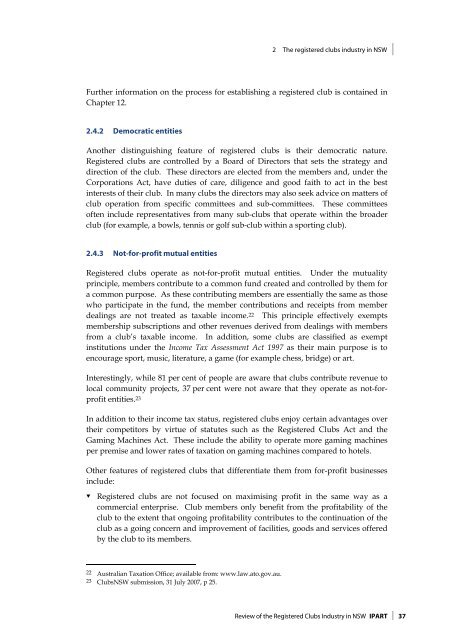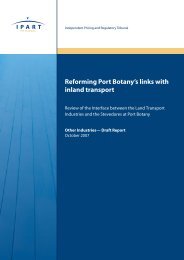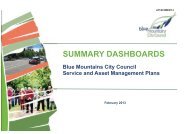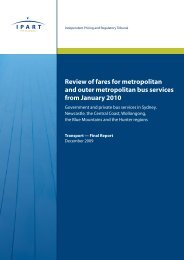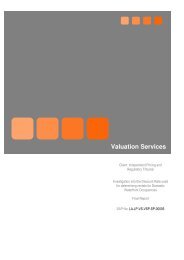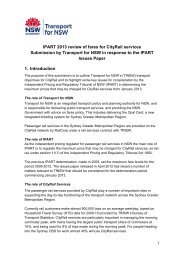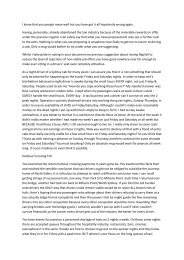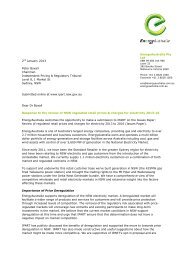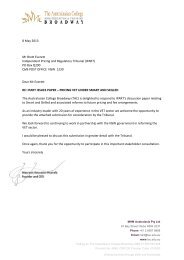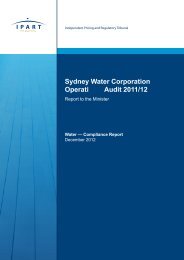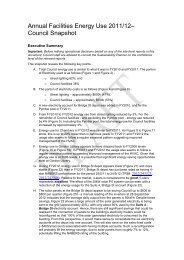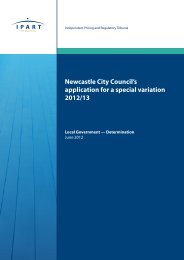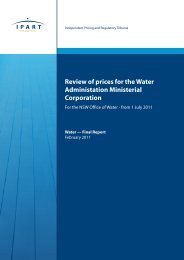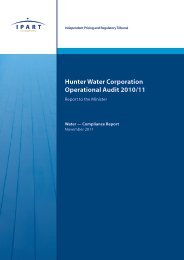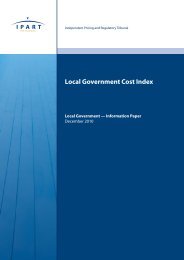Review of the Registered Clubs Industry in NSW - Clubs NSW
Review of the Registered Clubs Industry in NSW - Clubs NSW
Review of the Registered Clubs Industry in NSW - Clubs NSW
You also want an ePaper? Increase the reach of your titles
YUMPU automatically turns print PDFs into web optimized ePapers that Google loves.
2 The registered clubs <strong>in</strong>dustry <strong>in</strong> <strong>NSW</strong><br />
Fur<strong>the</strong>r <strong>in</strong>formation on <strong>the</strong> process for establish<strong>in</strong>g a registered club is conta<strong>in</strong>ed <strong>in</strong><br />
Chapter 12.<br />
2.4.2 Democratic entities<br />
Ano<strong>the</strong>r dist<strong>in</strong>guish<strong>in</strong>g feature <strong>of</strong> registered clubs is <strong>the</strong>ir democratic nature.<br />
<strong>Registered</strong> clubs are controlled by a Board <strong>of</strong> Directors that sets <strong>the</strong> strategy and<br />
direction <strong>of</strong> <strong>the</strong> club. These directors are elected from <strong>the</strong> members and, under <strong>the</strong><br />
Corporations Act, have duties <strong>of</strong> care, diligence and good faith to act <strong>in</strong> <strong>the</strong> best<br />
<strong>in</strong>terests <strong>of</strong> <strong>the</strong>ir club. In many clubs <strong>the</strong> directors may also seek advice on matters <strong>of</strong><br />
club operation from specific committees and sub-committees. These committees<br />
<strong>of</strong>ten <strong>in</strong>clude representatives from many sub-clubs that operate with<strong>in</strong> <strong>the</strong> broader<br />
club (for example, a bowls, tennis or golf sub-club with<strong>in</strong> a sport<strong>in</strong>g club).<br />
2.4.3 Not-for-pr<strong>of</strong>it mutual entities<br />
<strong>Registered</strong> clubs operate as not-for-pr<strong>of</strong>it mutual entities. Under <strong>the</strong> mutuality<br />
pr<strong>in</strong>ciple, members contribute to a common fund created and controlled by <strong>the</strong>m for<br />
a common purpose. As <strong>the</strong>se contribut<strong>in</strong>g members are essentially <strong>the</strong> same as those<br />
who participate <strong>in</strong> <strong>the</strong> fund, <strong>the</strong> member contributions and receipts from member<br />
deal<strong>in</strong>gs are not treated as taxable <strong>in</strong>come. 22 This pr<strong>in</strong>ciple effectively exempts<br />
membership subscriptions and o<strong>the</strong>r revenues derived from deal<strong>in</strong>gs with members<br />
from a club’s taxable <strong>in</strong>come. In addition, some clubs are classified as exempt<br />
<strong>in</strong>stitutions under <strong>the</strong> Income Tax Assessment Act 1997 as <strong>the</strong>ir ma<strong>in</strong> purpose is to<br />
encourage sport, music, literature, a game (for example chess, bridge) or art.<br />
Interest<strong>in</strong>gly, while 81 per cent <strong>of</strong> people are aware that clubs contribute revenue to<br />
local community projects, 37 per cent were not aware that <strong>the</strong>y operate as not-forpr<strong>of</strong>it<br />
entities. 23<br />
In addition to <strong>the</strong>ir <strong>in</strong>come tax status, registered clubs enjoy certa<strong>in</strong> advantages over<br />
<strong>the</strong>ir competitors by virtue <strong>of</strong> statutes such as <strong>the</strong> <strong>Registered</strong> <strong>Clubs</strong> Act and <strong>the</strong><br />
Gam<strong>in</strong>g Mach<strong>in</strong>es Act. These <strong>in</strong>clude <strong>the</strong> ability to operate more gam<strong>in</strong>g mach<strong>in</strong>es<br />
per premise and lower rates <strong>of</strong> taxation on gam<strong>in</strong>g mach<strong>in</strong>es compared to hotels.<br />
O<strong>the</strong>r features <strong>of</strong> registered clubs that differentiate <strong>the</strong>m from for-pr<strong>of</strong>it bus<strong>in</strong>esses<br />
<strong>in</strong>clude:<br />
<br />
<strong>Registered</strong> clubs are not focused on maximis<strong>in</strong>g pr<strong>of</strong>it <strong>in</strong> <strong>the</strong> same way as a<br />
commercial enterprise. Club members only benefit from <strong>the</strong> pr<strong>of</strong>itability <strong>of</strong> <strong>the</strong><br />
club to <strong>the</strong> extent that ongo<strong>in</strong>g pr<strong>of</strong>itability contributes to <strong>the</strong> cont<strong>in</strong>uation <strong>of</strong> <strong>the</strong><br />
club as a go<strong>in</strong>g concern and improvement <strong>of</strong> facilities, goods and services <strong>of</strong>fered<br />
by <strong>the</strong> club to its members.<br />
22 Australian Taxation Office; available from: www.law.ato.gov.au.<br />
23 <strong>Clubs</strong><strong>NSW</strong> submission, 31 July 2007, p 25.<br />
<strong>Review</strong> <strong>of</strong> <strong>the</strong> <strong>Registered</strong> <strong>Clubs</strong> <strong>Industry</strong> <strong>in</strong> <strong>NSW</strong> IPART 37


